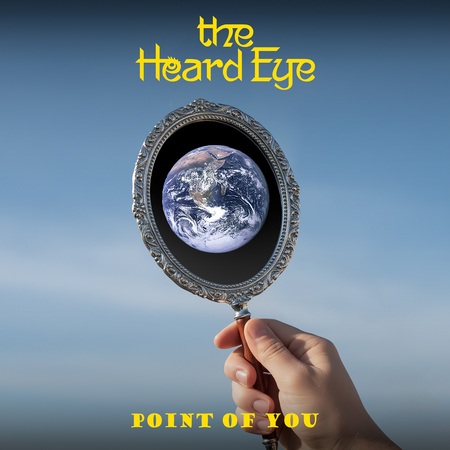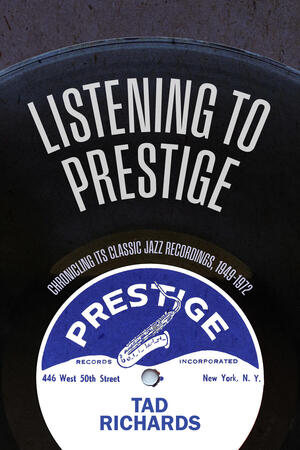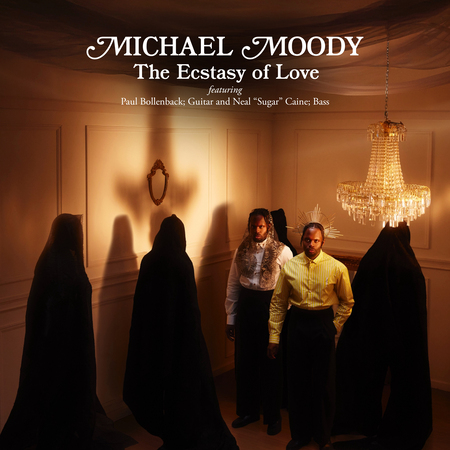MICHAEL GILAS NEW SINGLE “SIGMUND FREUD GIRLFRIENDS”

Michael Gilas is known for his straightforward adult-contemporary love songs, but with his latest single, “Sigmund Freud Girlfriends,” he signals a step in a different direction. The track, lifted from his recent album “231 Kensington Road,” finds Gilas at his most wry, culturally aware, and quietly adventurous.
At just under three minutes, “Sigmund Freud Girlfriends” is concise but conceptually loaded. The title nods to the father of psychoanalysis, and the song uses that reference satirically as Gilas sketches a modern dating landscape populated by armchair therapists; partners who diagnose and analyze you with social-media confidence.
The song departs from the more earnest romanticism that has characterized much of Gilas’ earlier work and adopts a lightly ironic tone. It’s a clever conceit, but what makes the song resonate is that it never becomes smug. Instead, Gilas delivers the critique with warmth, self-awareness, and melodic ease.
Yet beneath the humor lies something recognizably human: the desire to be understood without being over-interpreted. Gilas balances satire with sincerity, ensuring that the song doesn’t feel like a novelty track. The wit sharpens the emotional undercurrent rather than replacing it.
Sonically, the track sits comfortably within adult contemporary pop, shaded with R&B smoothness and a faint yacht-rock gloss. A mid-tempo groove anchors the arrangement, allowing Gilas’ vocals to remain front and center. The instrumentation feels meticulously layered, with clean electric guitar lines and keys providing harmonic warmth.
There’s an unmistakable radio-ready polish here and the production, reportedly involving Grammy-winning producer Brian Kennedy, favors clarity and melodic prominence. Every element feels intentional and nothing is cluttered; the space in the arrangement allows the hook to breathe.
Gilas’ vocal delivery remains one of his defining strengths. He doesn’t overplay the humor in the lyrics and instead sings them with the same smooth conviction he would bring to a love ballad. That restraint is key, because by avoiding caricature, he elevates the song from clever concept to cohesive artistic statement.
“Sigmund Freud Girlfriends” refines what Michael Gilas does best while nudging his songwriting into sharper, more modern territory. With its smooth production, memorable hook, and slyly observant lyrics, the single stands as one of his more conceptually daring releases to date.
Liz Luceris Presents ‘Hommage à Byron’

Award-winning composer Liz Luceris is known for her works built on classical and spiritual foundations, but her latest EP, “Hommage à Byron” crystallizes those impulses into a coherent artistic philosophy. It’s music that’s as challenging as it is beautiful, rooted in emotional truth rather than commercial production.
https://open.spotify.com/album/0hn1GHQDU7CfvLqnlrAlXv
On this three-track EP, Luceris channels Romantic verse through a contemporary musical lens, demonstrating a rare blend of intellectual curiosity, compositional rigor, and emotional transparency. Trained in classical composition at Berklee and experienced with orchestral collaborations in major studios, Luceris brings an orchestrator’s sensibility to her songwriting.
Instrumentation across the EP is rich and deliberate, as Luceris frames her voice with strings, flute, harp, and guitar in varying degrees. Her music sweeps between intimate affect and cinematic expansiveness, merging neo-classical orchestration, art pop, and elements of symphonic metal into a distinctive sonic persona. Production choices emphasize clarity and spatial balance, allowing intricate arrangements to breathe while foregrounding her vocal lines without overwhelming them.
The EP opens with “When We Two Parted,” a meditation on Byron’s elegiac text. Here, Luceris demonstrates an intuitive sensitivity to literary rhythm; her vocal delivery weaving through string sections that are sometimes hushed and sometimes swell into dramatic crescendos.
In contrast to the opener’s dramatic arcs, “So We’ll Go No More A Roving” adopts a pensive restraint. Shorter in length and quieter in tone, it unfolds like a musical sigh. The minimalist arrangement, lightly jazzed and reflective, underscores her ability to create mood out of absence as much as presence.
The EP’s longest piece, “I Speak Not” serves as its dramatic summit. Here, Luceris’ ambitious blend of neoclassical orchestration and symphonic rock energy reaches full force. Epic strings, electric guitar, and driving percussion coalesce into a composition that is as much a cinematic score as it is an expressive ballad. Luceris’ vocal performance is controlled yet powerful, anchoring expansive arrangements with vulnerability and strength.
For listeners seeking music that marries intellectual depth with sonic richness, this EP offers a rare and rewarding experience. Luceris isn’t just interpreting Byron. she’s engaging with him, translating his haunting emotional landscapes into music that speaks to the contemporary listener while honoring the past.
Liz Luceris Online:
Instagram | Facebook | HearNow | Spotify | YouTube
Benjie Porecki Presents “Faster Than We Know”

In the realm of contemporary jazz, few artists manage to balance artistic sophistication with emotional accessibility as seamlessly as keyboardist Benjie Porecki. His eighth solo album, “Faster Than You Know,” arrives March 2, 2026, as both a natural progression from his previous work and a bold statement of creative maturity.
Positioning itself firmly in the contemporary jazz realm with strong influences from funk, soul, gospel, and R&B, the album features Porecki on multiple keyboards, supported by bassist Cory Baker and drummer Mark Prince. This new trio recording finds Porecki at his most expressive, offering forty-five minutes of uplifting, groove-oriented music that speaks to the soul while challenging the ears.
Porecki’s versatility as a keyboardist shines throughout the 9-track collection as the music ranges from funky, up-tempo numbers to gospel grooves and soulful ballads. His ability to seamlessly transition between acoustic piano, Hammond B-3 organ, electric piano, and clavinet demonstrates the “chameleon-like ability” that has made him a sought-after sideman for artists ranging from Carlos Santana and Buddy Guy to Chaka Khan and Patti LaBelle.
The album opener, “Chrysalis,” demonstrates this approach immediately. The Latin-tinged composition features Porecki’s expressive piano work, with a solo that functions as an extension of the melody while taking the piece to unexpected harmonic territories.
Particularly noteworthy is the blending of piano and organ on “Make It Bring You Up,” where Porecki layers the two instruments with a natural ease that suggests years of experience. The multi-layered arrangement of “Fresh Start” showcases his ability to build infectious, head-bobbing grooves that feel both spontaneous and carefully constructed.
The album’s sole cover, Bonnie Bramlett and Leon Russell’s classic “Superstar,” receives a tender, emotionally raw treatment. Porecki’s piano work here is stripped down and intimate, filled with the kind of vulnerability that can only come from an artist who has lived with a song long enough to make it his own.
Faster Than You Know demonstrates that after three decades as a professional musician, Porecki is hitting his creative stride. It’s music that makes you feel good without being superficial, that grooves without being simplistic, and showcases virtuosity without showing off.
Red Norvo Present “The Secret Session”

Dot Time Records’ Legends series makes a stunning revelation with their latest release, “The Secret Session.” Premiering in January 2026, this album is a long-lost recording from late 1942 that confronts listeners with the raw, unvarnished energy of a jazz ensemble stood at the crossroads of swing and modernism.
This isn’t simply a historical curio. It’s a first-take document of a septet led by Red Norvo, a musician whose career had already spanned popular big bands, groundbreaking small groups, and, crucially, the elevation of mallet instruments into jazz’s mainstream.
https://dottimerecords.bandcamp.com/album/the-secret-session
Red Norvo was one of jazz’s early vibraphonists and a figure synonymous with the instrument’s legitimacy in the idiom. Dubbed “Mr. Swing,” he pushed against stereotype and convention, proving that xylophone, marimba, and vibraphone could be vehicles for sophisticated improvisation rather than novelty effects.
By 1942, the United States’ entry into World War II threatened to disperse his ensemble, and the American Federation of Musicians’ recording ban shut down unionized studio work. Undeterred, Norvo arranged a clandestine session; convincing an engineer to record the band in the dead of night. These tapes, never issued in their day, lay dormant until now.
Sonically, The Secret Session is an intriguing hybrid. Its ensemble interplay and phrasing remain rooted in the swing tradition. Yet scattered throughout are hints of the more angular, vocabulary-expanding language that would soon come to define bebop. This reflects both the moment and the musicians themselves: talents on the cusp of stylistic transformation but not yet fully realized as innovators.
The opener, “One Note Jive,” is a spirited statement of intent with muted horns dancing around Norvo’s xylophone lines. “I May be Wrong” is another standout track that clocks in at nearly seven minutes. This single feels more exploratory than many commercial recordings of the day. The brass section reimagines the melody with expressive smears and playful interjections, while the clarinet, piano and alto sax solos shine through.
The Secret Session is not a polished studio album in the modern sense. These feel like first takes: raw, spontaneous, and human. The record captures a band aware of its impermanence yet committed to making sound that mattered. For jazz aficionados, this recording should be appreciated not as a missing gem unearthed but as a time capsule: one that reveals not just Norvo’s remarkable leadership but also the nexus where swing sensibilities met the threshold of bebop.
Troy Castellano Releases “I Only Dance When I’m Drunk”

Troy Castellano brings “I Only Dance When I’m Drunk” out to play as the latest single from the 2025 album Beautiful Blur, and it’s a contrast between country and rock combined with lots of witty humor about tying one on and blaming it all on the alcohol. The overall point of the title is humorous in of itself, but you get a full load of humor throughout the song, which seems to be written all over Castellano’s work. And to call what musicians do as work can be the catch 22 of them all, as the fun vs. not, all adds up.
“I Only Dance When I’m Drunk” is something you either like or you don’t, in all well intended terms, because Castellano goes for channeling between country and country pop, if that’s possible. You know it’s rock and pop based from the get go, but the voice is pure country in every way, but other elements from rock to comedy are at play. The best thing going for “I Only Dance When I’m Drunk” is the unbridled sense of humor which takes a risk at any rate in the current landscape, and that’s why the comical factor either catches on with listeners or it doesn’t.
The excellence of this musician is without debate, it depends on your style of music and Castellano brings variety to back it with, and even if you’re not into country, you’ll appreciate the rock structured parts. I didn’t have to listen continuously to get the lyrics, but after just one spin I wanted to, and that is a testament to the artist and “I Only Dance When I’m Drunk” which comes with a title you’re either keen on or not, but the diversity brings something for most every country music fan to write home about with a touch of comedy relief.
https://open.spotify.com/track/4KAmR2x32akCa4U8BPA3hL
“I Only Dance When I’m Drunk” and the Beautiful Blur album is produced by Castellano and engineered by Grammy-nominated Bobby Holland, and features Castellano on acoustic and electric guitar and vocals, along with very notable players in the shape of Nathan Keeterie on electric guitar (Darious Rucker, Sam Hunt, Jelly Roll), Devin Malone on acoustic guitar (Jelly Roll, Carrie Underwood, etc), Tim Marks on bass (Taylor Swift, Luke Combs, Lionel Richie), with Luke Moseley on keyboards and Miles McPherson on drums. Castellano has been around the block opening for big name country and rock artists including the likes of Cheap Trick and a variety of others.
Words can’t always describe a song without detailing the lyrics, and “I Only Dance When I’m Drunk” comes with several killer sets of lyrics to satisfy, but some listeners look for music like this and some stay away, and that’s just what’s on the surface of any title. What Castellano also brings to the listener is a level of authenticity to go along with a lighthearted subject you can either appreciate or dismiss for whatever sake. And although it’s not for everyone, it still has mass appeal and globally translates well for country fans abroad.
Gwen Waggoner
PETER FURLAN PROJECT Presents “Live At Maureen’s Jazz Cellar”

There’s something inherently honest about a live jazz record when it’s done right, and Live at Maureen’s Jazz Cellar is exactly that kind of work. Recorded over two nights in June 2025 at Maureen’s Jazz Cellar in New York’s Hudson Valley, this latest release from the Peter Furlan Project captures a band operating at full stretch; confident, conversational, and deeply attuned to the room they’re playing in.
Led by saxophonist, composer, and arranger Peter Furlan, the album features a nonet of seasoned players navigating a set of mostly original compositions. The choice of venue is crucial here, because Maureen’s Jazz Cellar is known for its close acoustics and attentive audiences. the recording leans into that intimacy rather than fighting it, and you can hear the room interact with the ensemble throughout the album.
Stylistically, the album sits comfortably within modern post-bop and straight-ahead jazz, but Furlan’s writing keeps things from feeling conservative. His compositions are structurally thoughtful, yet they leave ample space for improvisation.
The instrumentation plays a big role in shaping the album’s sound. featuring trumpet, flugelhorn, alto, tenor, and baritone saxophones (with bass clarinet), trombone, piano, guitar, bass, and drums; the nonet offers a wide tonal palette. Furlan’s arrangements make full use of this, shifting between punchy horn figures and more spacious, layered passages.
https://peterfurlan.bandcamp.com/album/live-at-maureens-jazz-cellar
Furlan strikes a careful balance with the production, as the record’s clarity is impressive for a live performance. Solos sit clearly in the mix, ensemble sections retain their impact, and the low end never becomes muddy. At the same time, the sound avoids over-cleaning; there’s enough grit and air left in to preserve the feel of the performance.
Several tracks stand out across the set. “Return to the Be-Bop Tango” opens things with sharp energy, marrying angular lines with a sense of play that immediately signals the band’s confidence. “The Ice Committee” stretches out more, offering a strong example of how Furlan balances written material with open improvisation.
“Blues Squared” delivers exactly what the title promises; a blues framework expanded and refracted through modern ensemble writing. Closing highlight, “Mrs. Clean Freak,” one of the longest tracks on the album, feels like a miniature suite, moving through contrasting moods and giving multiple voices space to shine.
Live at Maureen’s Jazz Cellar succeeds because it understands what a live jazz album should do: capture chemistry. It showcases Peter Furlan not only as a formidable saxophonist but as a bandleader with a clear compositional vision and the trust of musicians capable of bringing that vision to life on the spot.
Jordan Seven New Single “Solid Ground”

Jordan Seven’s “Solid Ground” arrives as a defining moment on his latest album, “7,” a record that positions Jordan firmly as a trailblazer of modern rock. Released as one of the album’s key singles, the track doesn’t just tease the sound of the record; it crystallizes its emotional and sonic intent.
Even though Jordan builds a clear case for his own voice with this track, its DNA is unmistakably rooted in classic and post-grunge rock traditions. There’s a sense of familiarity in the chord progressions and guitar tones, but those influences are channeled into something grounded and contemporary instead of relying on nostalgia.
https://open.spotify.com/track/7LJUZkA5v8TYpSmREBANPv?si=336f30aac5be4f79
The fuzz-tinged electric guitars drive forward the track, giving it a raw, slightly gritty edge while locking in tightly with a steady, purposeful drum pattern. There’s a constant sense of forward momentum that provides an intentional contrast to the vulnerability expressed in the lyrics. Compared to some of the album’s more exploratory or atmospheric moments, “Solid Ground” is refreshingly direct and muscular.
Lyrically, the song leans into introspection and resilience, centering the narrative on themes of stability, self-trust, and perseverance. “Solid Ground” feels like a personal reckoning; an acknowledgment of uncertainty paired with a conscious decision to stand firm.
The production on this single reflects Jordan Seven’s self-produced ethos across 7. The mix is clean and uncluttered, prioritizing performance over polish. Vocals sit prominently without excessive effects, allowing emotional nuance to come through naturally. This stripped-back approach works in the song’s favor, giving it an immediacy that feels honest rather than overengineered.
“Solid Ground” succeeds because it captures Jordan Seven at his most focused. It’s not the flashiest or most complex track on 7, but it may be one of the most representative. By marrying retro rock energy with modern introspection and a clean, performance-driven production, the song underscores why 7 feels less like a debut experiment and more like a fully formed artistic arrival.
Jordan Seven Online:
Church Burglars Present ‘Welcome to Dreamland’ Album

With “Welcome to Dreamland,” LA-based alt-rock outfit Church Burglars delivers an album that feels deliberately out of step with the logic of modern rock. Sprawling, thematic, and unapologetically album-oriented, the record positions itself as a conceptual journey rooted in classic rock traditions but shaped by contemporary anxieties and reflections.
At its core, Welcome to Dreamland is a rock album, but not one that confines itself to a single stylistic lane. The band leans heavily on classic rock foundations with bold guitar riffs, muscular rhythm sections, and dramatic song structures while still allowing room for narrative ambition and thematic cohesion. The result is an immersive listening experience that rewards patience and full-album engagement.
Conceptually, Dreamland functions less as a literal place and more as a symbolic landscape; one that explores disillusionment, identity, and the uneasy pursuit of hope. Across its runtime, the songwriting grapples with personal and societal contradictions, often blurring the line between introspection and broader cultural commentary.
Following a purely instrumental overture, the album opens strong with “Dreamland,” an ethereal track that unfolds in contrasting movements, hinting at the sonic diversity to come. The musical complexity on these tracks is absolutely delightful, and “Invisible Man” stands out for its horn solos, heavy guitar riffs, and soaring vocals that never settle into a steady groove.
Among the album’s highlights is “King of Lies,” a track that encapsulates Church Burglars’ approach on Welcome to Dreamland. Combining sharp lyrical commentary with assertive rock instrumentation, the song stands out for its thematic boldness, capturing the album’s tension between critique and catharsis, and delivering a message that resonates without sacrificing musical drive.
01 Overture
02 Dreamland
03 Dr. Frankenstein
04 Invisible Man
05 One That Got Away
06 Intermission
07 King of Lies
08 Superman
09 Home
10 A Ballad For the Broken
11 Finale
12 Face of God
Production on Welcome to Dreamland strikes a careful balance between clarity and grit. The album sounds deliberately human: polished enough to feel intentional, yet raw enough to preserve the emotional weight of the performances. Guitars dominate the sonic palette, alternating between thick, driving riffs and more spacious, atmospheric passages that help shape the album’s pacing.
Overall, Welcome to Dreamland is a confident statement from Church Burglars. It’s an album that prioritizes theme, structure, and emotional continuity over fleeting hooks. Its blend of classic rock sensibilities with modern lyrical concerns results in a record that feels both familiar and purposeful.
ONLINE:
https://churchburglars.com/
https://www.instagram.com/churchburglars
https://www.facebook.com/people/Church-Burglars/61558007259706/
Alyson Faith New Single “Let’s Find Out”

With her latest single, “Let’s Find Out,” Alyson Faith delivers a warmly inviting slice of indie pop that explores the quiet thrill of emotional risk. Built around breezy melodies and thoughtful songwriting, the single continues Faith’s steady run of uplifting, human-centered releases while refining her sound.
What immediately stands out with “Let’s Find Out” is the light rock undertones that give it a timeless feel. The mood is unmistakably sunny and hopeful, but it’s reflective instead of sounding naive. Faith captures that familiar moment when caution and desire coexist, when you’re not entirely sure where something might lead, but you’re willing to take the step anyway.
https://open.spotify.com/album/4buVeIqEIxuJFX7iOvbfR
The instrumentation on this track plays a key role in sustaining the atmosphere with melodic guitar lines forming the backbone. These are complemented by warm synth textures that add a subtle retro glow, giving the song a comforting, almost nostalgic quality. The rhythm section keeps things buoyant and relaxed, providing just enough forward motion to maintain momentum without breaking the song’s easygoing spell.
The production on this track is delightfully crisp and uncluttered, with every element having room to breathe. The song’s melodic core and Faith’s vocal performance remain front and center, emphasizing clarity and warmth. Rather than seeking tonal perfection, the mix reinforces the intimate emotional tone while still sounding radio-ready.
– https://skopemag.com/2026/01/23/alyson-faith-shares-bright-feel-good-new-single-lets-find-ou
At the heart of “Let’s Find Out” is its songwriting. Co-written with Noel Cohen, the lyrics explore vulnerability with refreshing honesty. Faith balances self-awareness with romantic impulse, capturing the internal dialogue of someone who knows the risks of opening up but chooses curiosity over fear. The chorus is simple and memorable, functioning as both a hook and a quiet declaration of intent.
“Let’s Find Out” is a confident single that rewards repeated listens. It doesn’t chase trends or overwhelm with complexity, and instead succeeds by being melodic and emotionally grounded. Alyson Faith offers a song that feels both personal and universally relatable, taking a small but meaningful step forward in an already compelling catalog.
Listen to “Let’s Find Out” – HERE!
Stay connected with Alyson Faith for release updates and new music:
Spotify | Facebook
The Heard Eye Presents ‘Point of You’

With their latest single, “Point of You,” California-based collective The Heard Eye reaffirms their status as one of the more intriguing voices in the independent music scene. Renowned for a sound that blends funk, rock, jazz, and global influences, the band has steadily carved a niche that balances groove with thoughtful musicianship, and “Point of You” continues this trajectory with undeniable flair.
Formed in California’s North Bay Area, The Heard Eye emerged from the fruitful collaboration between trumpeter/vocalist Paul Schneider and Europe-based drummer/producer Atma Anur, deepening their sound through collaborations in the studio. Their debut album Funkalypse and subsequent singles like “All Love,” “Only One Earth” and “Plenty Love” demonstrate a consistent commitment to genre dissolving and rhythmic exploration.
“Point of You” positions itself firmly within The Heard Eye’s funk-rock fusion ethos by riding a high-energy current, fusing punchy rhythms with layered instrumentation. From the first bars, the song establishes a groove that’s both danceable and musically rich; a hallmark of the band’s ability to make complexity feel accessible.
One of the song’s immediate strengths lies in its instrumental interplay, with the bass and drums anchoring the track with a tight pocket that keeps the momentum lively from start to finish. Guitars and other elements interweave over that foundation, creating a tapestry of sound that rewards repeated listens.
STREAMING:
https://open.spotify.com/track/6zTNa4LBouOEeDX8V0s0CT?si=7f633b3799ef437d
VIDEO:
https://youtu.be/ZEBBwniSnjU?si=m6zvSnTvdFaZWfuF
Unlike sparser pop production, The Heard Eye embraces textured layers, giving each section room to breathe without overcrowding the mix. This is a band that writes with the ensemble in mind, not just the lead line.
The production on “Point of You” reflects both polish and personality with the beats being kept crisp and prominent in the mix. The vocals sit confidently in the foreground, matched to a soundscape that supports rather than competes with it.
Given the craftsmanship they’ve shown with this track, it’s clear that “Point of You” is more than just another entry in The Heard Eye’s growing body of work. It’s a distillation of what makes the band compelling: groove, ensemble interplay, and production savvy. For those already drawn to The Heard Eye’s genre-defying approach, this single will feel like a reaffirmation of their promise, and for newcomers, a compelling invitation to dive deeper.
ONLINE:
https://theheardeye.com/
https://www.facebook.com/theheardeye/
Logan Metz Presents ‘Sunrise’

With his latest release, “Sunrise,” Logan Metz delivers a single that has as much philosophical weight as its emotional payoff. Released alongside its companion piece “Overrated,” this song is a warm, layered track that marries optimism with textured artistry.
At its core, “Sunrise” is all about using lyrical imagery to explore the subtle beauties of everyday life. It has a simplicity in both the writing and composition that becomes
one of the song’s strengths. It gradually builds a sense of emotional resonance much like a first light that dissolves shadows without fanfare.
“Sunrise” features a folksy bedrock arrangement anchored by gentle guitar work and an infectious drum beat. The single gains its depth from subtle jazz inflections which are exemplified by a beautiful saxophone solo that enhances the track’s emotional breadth.
SPOTIFY:
https://open.spotify.com/track/7HY8jzIfjfMFQuX4xsXWGA?si=b3d9698ec9a64bf9
-or-
BANDCAMP:
https://loganmetz.bandcamp.com/track/sunrise
Rather than adopting a single stylistic identity, Metz embraces a genre-bending approach that feels deliberate rather than scattered. This textured layering gives the song a richness that rewards repeat listeners, while also signaling Metz’s confidence in blending traditions rather than remaining confined to a single musical lane.
Metz’s vocal delivery in “Sunrise” is an exercise in understatement as he maintains a warm and conversational honesty in his tone. This approach is perfect for highlighting the song’s lyrical themes without drawing undue attention to technical showmanship.
The production of this single aligns with the song’s goals of staying clear, balanced, and textured. Instruments breathe around Metz’s voice instead of crowding it, and the mix foregrounds warmth over sharpness. The arrangement supports the thematic arc without ever overpowering it; a testament to smart production choices that prioritize the listener over gimmickry.
“Sunrise” doesn’t make a loud statement, but it doesn’t need to. Its appeal lies in careful craftsmanship: thoughtful lyrics, warm instrumentation, expressive vocals, and production that serves the song rather than showcasing it. In the context of Metz’s body of work, it signals an artist comfortable with the breadth of his influences and confident in his narrative voice.
ONLINE:
https://www.loganmetz.com/
https://www.instagram.com/loganmetzofficial
Tad Richards Presents ‘Listening to Prestige’ Book

In his book “Listening to Prestige: Chronicling Its Classic Jazz Recordings, 1949–1972,” Tad Richards provides what many in the industry have called a “valentine” to one of the most foundational independent labels in post-war jazz history. Richards’ work is a deep dive into the evolution of modern jazz, viewed through the lens of a label that served as a springboard for many of its great icons’ careers.
Richards is an author and jazz enthusiast who fully immersed himself in the genre during the 1950s, a period that sparked his lifelong passion for music. His deep involvement in modern jazz is evidenced by his ten-year project, the blog “Listening to Prestige,” where he listened to and documented every single Prestige recording session in chronological order starting in 2014.
This book grew out of that exhaustive study, blending his personal collecting history with a professional’s grasp of jazz’s historical succession and the bebop era. Richards’ contribution is significant because while labels like Blue Note have been extensively documented, Prestige has remained relatively overlooked in a historical sense.
Richards begins the narrative by highlighting that Prestige and other independent labels were willing to take risks on new talent and “uncompromising expressions” of jazz that major corporate labels often ignored. A defining characteristic of the label was Bob Weinstock’s preference for “pure spontaneity” in the studio. Prestige sessions often captured the raw atmosphere of the New York jazz scene, often resembling all-out jam sessions.
One of the most interesting segments of the book is the section on technical innovation, chronicling how the shift from 78 rpm records to the 10-inch and eventually 12-inch LP changed the music itself. Richards makes the classy choice of not focusing on artists alone, and dedicates a significant segment of this book to the pivotal role of recording engineer Rudy Van Gelder, whose suburban living room studio became the site of many of the label’s most historic sessions.
Among the artists covered, Richards highlights a Mount Rushmore of Modern Jazz that started their careers at Prestige, composed of Miles Davis, Sonny Rollins, and Thelonious Monk. While all these artists moved on to bigger and better-funded records, it was Weinstock’s vision that brought them into the spotlight.
Where Richards’ work truly shines is in its treatment of the label’s later years, a period often overlooked by jazz purists. He details the 1957 arrival of Mose Allison and Yusef Lateef as a turning point where the label began to outgrow its New York bebop roots.
As the 1960s took hold, Richards chronicles the rise of “Soul Jazz,” led by a new vanguard with the likes of Jack McDuff, Richard “Groove” Holmes, and Charles Earland.
Richards builds a compelling argument that these records, often dismissed by critics, were essential to the label’s survival and reflected the shifting cultural tastes of the Black American audience.
The book concludes with the 1971 sale of the label to Fantasy Records for $3.2 million. By then, the independent distribution model was crumbling, and Weinstock recognized that the era of the small, personality-driven jazz label was ending.
Ultimately, Listening to Prestige is an essential addition to any jazz library. Tad Richards has done more than just list sessions; he has mapped the soul of a label that was willing to be messy, immediate, and profoundly human.
https://sunypress.edu/Books/L/Listening-to-Prestige
Liam Horne Presents ‘Paradise’

Liam Horne continues his slow-burning ascent in the world of pop music with his latest release, “Paradise.” Horne’s breakout moment in the industry came long before stepping fully into the spotlight as a solo artist when he was featured as a co-writer on Justin Bieber’s 2012 hit, “Out of Town Girl”. That early success positioned him as a songwriter with a keen instinct for melody and emotional clarity; qualities that have remained central throughout his own releases.
Over the years, Horne’s solo catalogue, including tracks such as “Black and White,” “I Am,” “All on Me,” “Bartender,” and “Cars with Leather,” has established him firmly within the modern R&B lane. As an artist who favors sincerity over spectacle, Horne leans on smooth vocal delivery, clean production, and themes of self-worth, love, and emotional accountability.
Paradise feels like a natural continuation of that trajectory, while also suggesting a more confident and refined artistic voice. At its core, Paradise is a song about choosing depth over distraction. The songwriting centers on the idea of lasting connection; not the fleeting thrill of romance, but the quieter, more meaningful promise of consistency and emotional presence.
https://hypeddit.com/liamhorne/paradise
Rather than relying on lyrical dramatics, Horne opts for a measured, conversational tone. The lyrics unfold like a late-night confession, full of vulnerability and intention.
There’s a lived-in intimacy here, and it lines up perfectly with the understated RnB arrangement.
Horne’s vocal performance is one of the song’s strongest assets. His delivery is smooth and controlled, carrying emotional weight with a sincere tone and making the performance feel personal rather than performative. This restraint aligns well with his established vocal style and reflects a growing confidence in letting the music speak for itself.
From a production standpoint, Paradise benefits from a polished, contemporary finish. There are places where you can see the fine touches to harmonize the vocals and arrangement, but they do nothing to take away from the song’s emotional impact.
Paradise doesn’t attempt to reinvent Liam Horne’s sound, and refines it instead. The single reinforces his strengths as a songwriter and vocalist, showcasing an artist increasingly comfortable with emotional honesty and musical restraint. With a new album in the works, we can’t wait to see what Liam Horne has to share with us next.
https://www.instagram.com/liamhorne/
Michael Moody Presents “The Ecstasy of Love” Out March 20, 2026

Jazz vocalist Michael Moody delivers a recording that feels both timeless and quietly revelatory with his latest release, “The Ecstasy of Love.” Completely stripped of excess, this new album finds Moody returning to the core of the jazz vocal tradition: intimate storytelling, melodic flexibility, and deep respect for lyric.
At just over 36 minutes, The Ecstasy of Love is concise by design, yet it feels remarkably complete. Moody presents a dozen well-known standards with a breath of fresh air, proving that the classics are still capable of surprise. The result is an album that rewards close listening and emotional attention rather than spectacle.
This record draws heavily from the lineage of straight-ahead jazz vocalists and is dedicated to Carmen McRae. The classic influences inform both Moody’s phrasing and his willingness to subtly reconfigure melodies. ‘
The album opens with “The Nearness of You,” beginning with an unaccompanied vocal verse before the guitar and bass quietly enter. The performance is brief but telling, and Moody makes his point quickly, proving that concision can be just as powerful as expansion.
Thematically, The Ecstasy of Love explores romance as a lived experience filled with tenderness, conflict, and quiet hopefulness. This is especially apparent in his interpretation of “Easy to Love.” The familiar Cole Porter tune is stripped down to a simple bass and vocal duet, with its phrasing and pacing transformed in a way that’s unmistakably Moody’s own.
The album’s instrumentation is intentionally spare: voice, guitar, and bass. Moody is accompanied by Paul Bollenback on guitar and Neal “Sugar” Caine on bass, a duo whose restraint and sensitivity are essential to the album’s success. There are no drums, no horns, and no harmonic clutter: just space and nuance.
The production on The Ecstasy of Love is clean, warm, and unobtrusive, allowing the natural interplay between musicians to take center stage. Every note feels intentional, every silence meaningful. There is a sense that nothing has been added without reason and nothing has been left out by accident.
For listeners who value nuance, lyric intelligence, and emotional honesty, The Ecstasy of Love offers deep rewards. It’s proof that intimacy, when handled with this level of artistry, can be every bit as powerful as grandeur.
https://www.facebook.com/MusqicMinded
Carolyn Trowbridge Presents “Duchess of Sheba”

With “Duchess of Sheba,” Carolyn Trowbridge steps decisively into the foreground as a composer and bandleader, unveiling a piece that is both hypnotic and commanding. Serving as a key introduction to her Found Memories project, the single distills years of cross-genre experience into a sound that feels deliberate, immersive, and richly transportive.
At its core, “Duchess of Sheba” is driven by vibraphone, Trowbridge’s primary voice, which glows with a warm, resonant shimmer throughout the track. Rather than functioning as a decorative layer, it acts as the melodic anchor, unfolding phrases that feel ritualistic and cyclical. The use of the pentatonic scale and the overall oriental sound of the single places is squarely in Ethio-jazz traditions, where groove and mode take precedence over overt harmonic complexity.
The instrumentation is spare but deeply effective as flute lines drift in and out of the arrangement, offering an airy counterpoint to the vibraphone’s metallic clarity. The guitars are used more for subtle rhythmic propulsion than lead statements, while bass and drums lock into a fluid, understated groove that maintains momentum without ever demanding attention.
Stylistically, “Duchess of Sheba” sits at a crossroads between contemporary jazz, Ethio-jazz, and modern Exotica-influenced soundscaping. There’s a cinematic quality to the arrangement; a sense of place and atmosphere that evokes mid-century exotica. But instead of sounding nostalgic, Trowbridge reframes those influences through a modern jazz lens, using texture and tone as narrative tools.
While Trowbridge is long respected as a versatile percussionist, her previous output often emphasized color, texture, and interplay within broader group contexts. On
“Duchess of Sheba,” however, she asserts a clearer compositional identity. The vibraphone no longer decorates the margins; it leads the story.
What’s particularly striking is the track’s discipline. Solos are integrated seamlessly into the ensemble fabric rather than spotlighted for virtuosity’s sake. The focus remains on mood, motion, and collective momentum: a choice that reinforces the track’s hypnotic character and highlights Trowbridge’s maturity as a composer.
“Duchess of Sheba” is a confident and immersive statement that bridges global jazz influences with contemporary sensibilities. Subtle, groove-driven, and richly atmospheric, the single suggests that Trowbridge’s upcoming album, “Found Memories,” will be less about genre boundaries and more about crafting spaces listeners can inhabit.
https://www.carolyntrowbridge.com/listen
Doug MacDonald Trio Presents “Live In Beverly Hills”

With “Live In Beverly Hills,” guitarist Doug MacDonald opens a time capsule and finds it still glowing. Recorded at the Beverly Hills Art Show on May 19, 2012, and released more than a decade later, this previously unreleased live set captures MacDonald alongside bassist Lou Schoch and drummer Billy Paul in a moment of rare alignment.
Despite its age, the album doesn’t sound dated, and arrives as a vibrant jazz statement that feels as immediate and alive as the night it was played. At its core, Live In Beverly Hills is a classic guitar trio jazz album, rooted firmly in the mainstream style while leaving ample room for spontaneity and personality.
https://www.instagram.com/p/DS3wK1Gkcat/
The album’s repertoire reflects both respect for the jazz canon and confidence in original material. It opens with a buoyant take on Luiz Bonfa’s classic, “Samba De Orfeo,” setting the tone with a rhythmic lilt and melodic clarity that immediately draws the listener in. The guitar work here is fluid and lyrical, while Billy Paul’s drumming adds crisp, conversational commentary beneath the melody.
Two MacDonald originals, “Unimpressed” and “Mall Blues,” anchor the album’s compositional identity. “Unimpressed” is a minor-key piece characterized by its toned-down guitar and bass solos, offering a spacious framework for improvisation. “Mall Blues,” by contrast, is a compact, up-tempo riff-based tune that highlights the trio’s tight rhythmic coordination and instinctive pacing.
The standards are handled with equal care and imagination. One of the album’s most distinctive moments comes with “Early in the Morning,” where bassist Lou Schoch steps forward as a blues vocalist. “Yesterdays” closes the album with a passionate, reflective reading that underscores the trio’s emotional range.
What truly elevates Live In Beverly Hills is the chemistry between the musicians. MacDonald, Schoch, and Paul shared a long musical friendship, and that familiarity translates into an intuitive, almost telepathic rapport. Paul’s drumming is alert and responsive, while Schoch’s bass lines are melodic and grounding, leaving space for MacDonald’s guitar to soar.
Live In Beverly Hills stands as a compelling reminder of Doug MacDonald’s strengths as a guitarist, composer, and bandleader. It is a record built on swing, trust, and deep musical conversation: rewarding close listening while remaining immediately accessible.
https://www.dougmacdonald.net/
Circus Mind Presents “Whole Lotta Nuthin”

Circus Mind has long specialized in blending soul, funk, rock, and Americana into something warm and lived-in, and this latest release finds them doubling down on that ethos. With “Whole Lotta Nuthin,” The New York–based band delivers a single that feels deceptively relaxed while carrying a quietly pointed message beneath its groove.
At its heart, “Whole Lotta Nuthin” is a song about authenticity in an age of decadence and chasing trends. The title suggests emptiness, but the track flips that idea on its head, framing “nuthin” not as absence, but as a rejection of artificial gloss.
Circus Mind sticks to their traditional style by avoiding heavy-handed commentary. Instead, they lean into direct, conversational lines that feel grounded and intentional. This restrained and straightforward approach allows the message to settle naturally into the groove, rather than standing apart from it.
That groove is the track’s backbone, as “Whole Lotta Nuthin” unfolds over a laid-back rhythm, driven by a supple bassline and tight drums. The arrangement draws heavily from vintage soul and funk, as guitar accents punctuate the rhythm without overcrowding it. There’s a tasteful horn solo that kicks in as the interlude, adding color and lift to the single.
Rechler’s vocal performance is a central strength. His delivery is smooth, expressive, and grounded, carrying an easy confidence that suits the song’s message. He doesn’t oversell the emotion and lets phrasing and tone do the work.
The production on this track favors warmth over polish, and the mix allows instruments to breathe, preserving their natural character rather than sanding down every edge.
The vocals sit comfortably in the mix, close enough to feel personal, while being supported by an ensemble that sounds organic.
Taken as a whole, “Whole Lotta Nuthin” is a quietly confident release that plays to Circus Mind’s strengths. It doesn’t attempt reinvention, but instead refines what the band already does well. In doing so, it makes a compelling case that sometimes “nothing” can mean a whole lot more than it seems.
https://linktr.ee/circusmindband
Vinyl Floor Present ‘Balancing Act’

With their sixth full-length release, “Balancing Act,” Danish melodic rock outfit Vinyl Floor delivers one of the most thematically cohesive albums of their career. On this record, the Copenhagen-based brothers Daniel Pedersen and Thomas Charlie Pedersen refine the sound they have patiently developed over nearly two decades and push it into richer, more nuanced territory.
At its core, Balancing Act is exactly what its title suggests: an album built around emotional, artistic, and societal equilibrium. Generously colored by symphonic, progressive, and electronic elements, it doesn’t fit into one particular niche. However, Vinyl Floor’s foundation remains classic, with drums, bass and guitars forming the backbone with lush strings, subtle synthesizers, and layered vocal harmonies elevating the arrangement.
The band opts for a warm and vintage-leaning sound on this record that’s slightly reminiscent of British 60s pop-rock. While the influences are evident, nothing sounds dated; a testament to the final mix and master by Søren Vestergaard at The Shelter. Recorded live at Studio Möllan in Malmö with Swedish producer Emil Isaksson, the basic tracks have an immediacy and cohesion that give the songs room to breathe and strike a fine balance between polish and presence.
The lyrics of Balancing Act are often surreal and rich in imagery with no straightforward message. Themes of insecurity, false promises, creative doubt, and personal resolve recur throughout the album, giving it a reflective, sometimes mystical tone. Importantly, the songwriting avoids grand statements in favor of smaller observations.
The lead single, “Mr. Rubinstein,” establishes the album’s dramatic scope. Built around a slow-burn arrangement of piano, strings and measured rhythm, the song explores the uneasy relationship between artist and critic, ego, and self-doubt.
Meanwhile, “Puppet Laureate” is a more upbeat track that is more traditional in its sound with a guitar and horn-driven arrangement. The title track, “Balancing Act,” is the album closer, and takes a darker note as it critiques the futility of playing the balancing act that is life.
Across all thirteen tracks, Balancing Act stands as a mature and thoughtfully crafted album, showcasing Vinyl Floor at a creative high point. It successfully balances classic melodic rock sensibilities with orchestral depth and modern production. Rich in atmosphere and emotional intelligence, the album rewards attentive listening and confirms Vinyl Floor’s place as one of Denmark’s most quietly compelling rock acts.
Facebook: https://da-dk.facebook.com/vinylfloorband
Twitter: @vinylfloorband
Instagram: @vinylfloorbanddenmark
Carl Clements Presents ‘Retrospective’ Out March 1, 2026

Veteran jazz composer Carl Clements commands your attention with his latest project, “Retrospective,” a jazz quartet that showcases the wealth of experience he’s amassed over the years. With Retrospective, recorded with the Real Jazz Trio, Clements turns his experienced ear toward both reflection and reinvention, offering an album that bridges tradition and exploration in subtly compelling ways.
Boston-based but internationally active, Clements’s musical life spans decades of saxophone mastery, world music study, and original composition. A Ph.D. in Ethnomusicology and a lifetime of study with luminaries across jazz and Hindustani classical music lay the foundation for an approach that comfortably treads between modal jazz, post-bop, world fusion, and improvised music. His earlier quartet album A Different Light, released on Greydisc in 2024, exemplified this; folding North Indian bansuri and Asian melodic inflections into modern jazz frameworks with admirable fluency.
Like his previous works, Retrospective stays rooted in modern jazz but leans into the acoustic interplay of a classic trio setting; saxophones and flute up front, supported by piano, bass, and drums. This ensemble format is a natural evolution of Clements’s prior quartet work, but the trio framework l brings a more integrated group voice, where each player anchors and propels collective improvisation.
The album opens with “One for Joe,” a lively piece where Clements’ virtuosic saxophone playing takes the forefront. The call and response between him, Johannes Schaedlich on bass, and Jean-Yves Jung on piano keeps the single fresh, and the album opener passes through like a breeze.
The lengthier “Mobius” proceeds with gravitas, taking a weightier and more measured approach. The wind instruments are more melodic and song-like in this track, with Jens Biehl on drums being responsible for driving it forward.
But the standout track is the closer, “Kadam,” which showcases Clements’ North Indian flute training. The flute takes the spotlight and weaves together the accompaniments into a harmonious melody that combines jazz and Hindustani classical music to create something more than the sum of its two parts.
The production on every track is immaculately done, with enough polish to enhance the listening experience without sounding overdone. The placement of the drums in the mix is especially smart as it never overpowers the melodic lines, but still sounds crisp and powerful.
Retrospective may not be a nostalgia piece in the conventional sense, but its title feels apt: the album distills Carl Clements’s artistic identity into a dynamic trio setting that honors his past while embracing fresh sonic possibilities. Fans of modern jazz with world-inflected melodies, and masterful saxophone storytelling will find much to savor here.
Ron Rieder Presents ‘Compositions in Blue and Other Hues’

Massachusetts-based composer Ron Rieder makes a decisive turn toward straight-ahead jazz with his latest release, “Compositions in Blue and Other Hues.” Featuring a collection that is as rooted in tradition as it is animated by personal expression, this new album strips away the clave and replaces it with rhythms that swing, bop, and breathe.
At its core, Compositions in Blue and Other Hues is a study in jazz color. The title itself signals Rieder’s intent, with “blue” functioning both as an emotional reference point and as a stylistic anchor. The “other hues” suggest a broader palette of tempos, and textures across eleven original compositions,
https://ronrieder.hearnow.com/compositions-in-blue-and-other-hues
Stylistically, the album sits firmly in the straight-ahead tradition as hard bop, blues, and swinging post-bop forms dominate the soundscape. Yet it never sounds academic or reverential. Rieder’s writing favors clear melodic ideas and logical harmonic movement, providing fertile ground for improvisation while maintaining strong compositional identity.
The album’s sequencing reinforces its conceptual coherence, as each track feels like a distinct shade within a larger spectrum. from the earthy blues inflection of “Peach Blossom Blues” to the playful retro imagery suggested by “Broadway Boogie,” Rieder demonstrates that he’s not afraid of experimenting. Even the brief “Interlude: Amingus Amonkus” functions as a tonal palate cleanser, nodding subtly to jazz lineage while keeping the album’s momentum intact.
Much of the album’s strength lies in the caliber and chemistry of the ensemble. The quintet features Yaure Muniz (trumpet), Mike Tucker (tenor saxophone), Maxim Lubarsky (piano), John Lockwood (bass), and Mark Walker (drums), bringing a collective energy that elevates the material beyond the page.
Produced by Rieder himself, the album benefits from a clean, natural production aesthetic. The mix favors clarity and balance, allowing each instrument its own space while preserving the feeling of a live ensemble in motion.
Ultimately, Compositions in Blue and Other Hues succeeds because it reaffirms straight-ahead jazz as a living, expressive form. Rieder’s compositions invite the listener in, and showcase the kind of musicianship that thrives on trust, interaction, and shared intent. It’s a reminder that sometimes the deepest colors emerge not from expansion, but from refinement.
